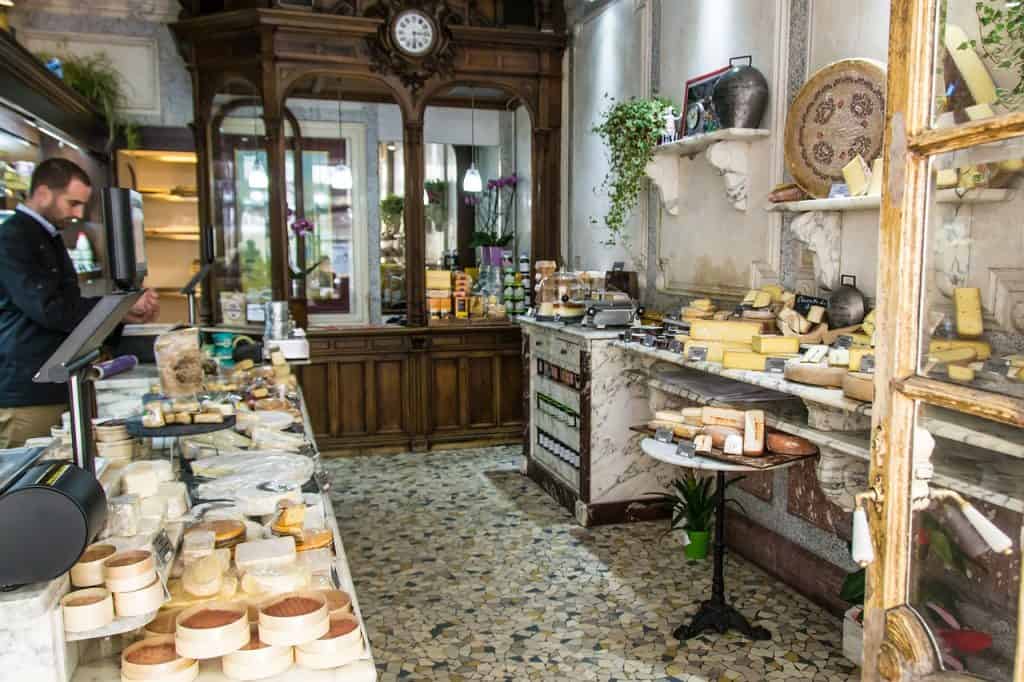If you ask me, not making a dick of yourself is an important factor when travelling. As the old saying goes, “There are untold ways to be a dick abroad”. Okay, I made that up, but my point stands. Even the most experienced globetrotter can make mistakes, and most of the time these just lead to funny stories to tell when you get home.
Each country has its quirks, and in this article, we are going to start with the quirkiest country of all, France.

In France, cultural norms and manners are highly valued. To ensure a smooth and respectful trip, it’s important to familiarize yourself with the etiquette tips for travelling in France.
The French are known for their individualistic approach to life and their emphasis on freedom, which may explain some of their unique customs and behaviours. Understanding these cultural nuances will help you navigate social situations with ease and make a positive impression.
Key Takeaways:
- French culture places a high value on manners and etiquette.
- Embrace the quirk of initial “No” responses and view it as an opportunity to convince.
- Be prepared for different social norms when it comes to waiting in line and service speed.
- Polite greetings and attempts to speak French will be appreciated.
- Be mindful of dining etiquette and tipping customs.
Embracing French Quirks: Don’t Take “Non!” for an Answer
When it comes to French etiquette, one important quirk to keep in mind is the initial “No” response you may encounter. In French culture, saying “No” is often seen as a challenge that requires you to provide a good reason to change someone’s mind. It might be tempting to view this as rudeness, but it’s actually a cultural nuance that should be embraced.
Instead of becoming discouraged by a “No” response, consider it an opportunity to convince the person of your request. This can be particularly important when dealing with authorities, such as ticket agents or store clerks. By presenting a well-thought-out case or demonstrating your genuine need, you may be able to persuade them to change their initial response.
“In France, saying ‘No’ means ‘Maybe’. It’s a chance for you to prove your case and possibly get what you want.” – French Etiquette Expert
Remember, this cultural quirk is not meant to be taken personally. It’s simply a part of French society that values individualism and the importance of persuasive arguments. So the next time you receive a “No” in France, don’t give up easily—view it as an invitation to engage in a respectful debate and showcase your reasoning skills.
| Do’s | Don’ts |
|---|---|
|
|
Navigating Social Norms: Standing in Line and Speed of Service
As you immerse yourself in the unique customs of France, it’s important to understand the social norms surrounding standing in line and the speed of service. While waiting your turn in line is a common practice in many countries, you’ll find that the French have a different approach. In public places like train stations, airports, and markets, it’s not uncommon for people to disregard the queue and try to advance ahead.
Line-jumping is accepted and can be frustrating for those accustomed to the orderly system in other parts of the world. However, once everyone is on the bus or in a store, people tend to be more courteous and willing to offer seats to those in need.
The speed of service in France may also differ from what you’re used to. Unlike the fast-paced service often found in the United States, the French appreciate a more relaxed and patient approach. When browsing in stores, take your time and enjoy the experience.
Don’t rush through restaurants either; allow servers to provide you with ample time to peruse the menu and savour your meal. Embrace the slower pace and enjoy the opportunity to fully immerse yourself in the French way of life.
To provide you with a better understanding of these social norms, consider the following table:
| Standing in Line | Speed of Service | |
|---|---|---|
| Traditional Approach | Respecting the queue and waiting your turn | Efficient and quick service |
| French Approach | Line-jumping can be common, disregard for queue | Relaxed and slower pace |
| Exceptions | People tend to be more courteous and willing to offer seats once everyone is on the bus or in a store | Allowing customers time to browse and enjoy the experience |
By understanding and respecting these social norms, you can navigate your way through French society with ease and cultural sensitivity. Remember to be patient, embrace the slower pace, and be courteous to those around you.
This will help ensure a positive and respectful experience during your time in France.
Greetings and Language Etiquette
Greetings and language etiquette play a significant role in French culture. When interacting with French people, it is important to adhere to certain customs. Begin your conversations with a formal greeting such as “Bonjour Madame/Monsieur” or “Bonsoir” in the evening. This shows respect and sets a polite tone for the conversation.
While many French people do speak English, making an effort to speak French, even if it’s just a few basic phrases, can go a long way in establishing a positive rapport. It shows that you are making an effort to adapt to their language and culture.
When speaking French, remember to speak slowly and use simple language to ensure better communication.
It is also important to be mindful of the French preference for privacy and formality. Avoid initiating small talk or asking personal questions too soon, as the French tend to be more reserved with people they don’t know well. Instead, focus on topics that are more general and neutral, such as art, literature, or the local cuisine. This will help to create a comfortable and respectful atmosphere.
Language Etiquette Tips:
- Begin conversations with a formal greeting like “Bonjour Madame/Monsieur” or “Bonsoir.”
- Make an effort to speak French, even if it’s just a few basic phrases.
- Speak slowly and use simple language when communicating in French.
- Avoid initiating small talk or asking personal questions too soon.
- Focus on neutral topics like art, literature, or local cuisine.
“Speaking a few words of the local language is the key to a traveler’s heart.”
Remember, showing respect and making an effort to adapt to the French language and customs will go a long way in fostering positive interactions and cultural understanding. So, embrace the opportunity to learn and immerse yourself in the beautiful language and etiquette of France.
Greetings and Language Etiquette Tips
| Etiquette Tips | Description |
|---|---|
| Greet with “Bonjour Madame/Monsieur” or “Bonsoir” | Initiate conversations with formal greetings to show respect. |
| Make an effort to speak French | Even basic phrases can help establish a positive rapport. |
| Speak slowly and use simple language | Clear communication is key in cross-cultural conversations. |
| Avoid personal questions | Respect the French preference for privacy and formality. |
| Focus on neutral topics | Discuss art, literature, or local cuisine to create a comfortable atmosphere. |
Dining and Tipping Etiquette

When dining in France, it’s important to be aware of the cultural customs and expectations surrounding food and tipping. French cuisine is world-renowned, and experiencing it authentically will enhance your overall travel experience. Understanding the dining etiquette will help you navigate the restaurant scene with confidence and ensure a positive interaction with the locals.
Table Etiquette
French cuisine is a celebration of flavors and culinary mastery. When dining in France, it’s important to embrace the French way of eating and savor every bite. Here are a few key table etiquette tips to keep in mind:
- Avoid customizing your food orders: In France, the chef’s creations are highly respected, and altering dishes to personal preference is not common practice. Embrace the chef’s vision and enjoy the flavours as they were intended.
- Respect the pace of the meal: French dining is a leisurely affair, with emphasis placed on savouring each course and enjoying the company of others. Avoid rushing through your meal and allow ample time for conversation and enjoyment.
- Use utensils correctly: Unlike in some other countries, it is customary to hold the fork in the left hand and the knife in the right hand while eating. Keep your wrists resting on the edge of the table and avoid switching utensils while eating.
- Keep your hands on the table: In France, it is considered impolite to have your hands in your lap during the meal. Instead, keep your hands visible on the table, resting gently with your wrists at the edge.
Tipping Customs
Tipping in France is not as common or expected as it is in some other countries. However, it is still customary to show appreciation for exceptional service. Here are some tipping customs to keep in mind:
- Service charge: Most restaurants in France include a service charge, or “service compris,” in the bill. This charge typically covers the tip for the server. However, if you receive exceptional service, it is appreciated to leave some extra change, typically rounding up the bill to the nearest euro.
- Taxi drivers: Tipping taxi drivers is not required, but it is customary to round up the fare or leave a small amount of change as a gesture of appreciation.
- Tour guides: If you take a guided tour in France, it is customary to tip the guide at the end of the tour as a show of gratitude for their expertise.
By following these dining and tipping etiquette tips in France, you can enjoy a seamless and respectful dining experience while immersing yourself in the rich culinary traditions of the country. Bon appétit!
Conclusion

Travelling in France can be a rich cultural experience that offers a glimpse into the country’s unique customs and traditions. By familiarizing yourself with French etiquette, you can enhance your interactions with locals and make your trip more enjoyable.
Embracing the quirks of French culture, such as their initial “No” response, allows you to navigate social norms with ease. Remember to view it as an opportunity to convince others rather than a complete refusal. Additionally, understanding the French approach to waiting in line and the slower pace of service will help you adjust your expectations and prevent frustration.
Greetings and language etiquette play a significant role in French society. Starting conversations with a polite greeting, speaking French even if it’s just a few phrases, and avoiding personal questions too soon will help you establish a positive rapport with locals. Finally, be aware of dining and tipping customs. Avoid customizing your food orders, refrain from requesting to-go boxes, and be mindful of tipping practices.
By following these French etiquette tips and embracing the cultural customs of France, you’ll be able to immerse yourself in the experience and create lasting memories. Remember to be respectful, open-minded, and willing to adapt to the customs of the country you are visiting. Bon voyage!
FAQ
What should I do when someone says “No” in France?
In France, saying “No” is often seen as a challenge. View it as an opportunity to convince the person of your request rather than giving up easily.
How do I navigate waiting in line in France?
Waiting your turn is not the norm in France. Line-jumping is common, but once everyone is on the bus or in a store, people tend to be more courteous and offer seats to those in need.
How should I greet people in France?
It is polite to greet people with a formal “Bonjour Madame/Monsieur” or “Bonsoir” in the evening. Making an effort to speak French, even a few basic phrases, can go a long way in establishing rapport.
What should I know about dining etiquette in France?
Avoid customizing food orders unless you have a specific allergy. Asking for a to-go box is not common practice. It is also considered rude to ask for a coffee to go. Tipping is appreciated for exceptional service, but check if the service charge is already included in the bill.
How can I enhance my interactions with locals in France?
By embracing French quirks, practising appropriate greetings, and following dining and tipping etiquette, you can immerse yourself in the culture and make your trip more enjoyable.


